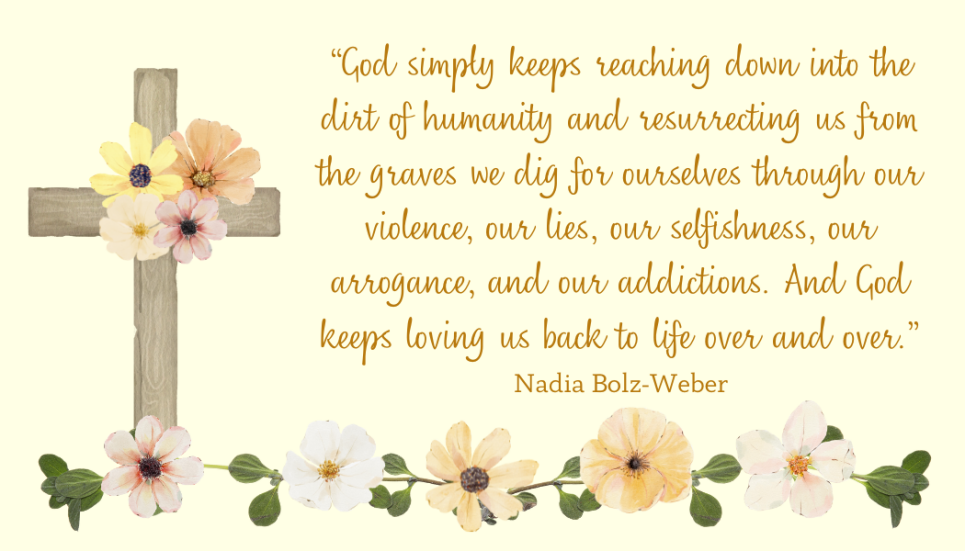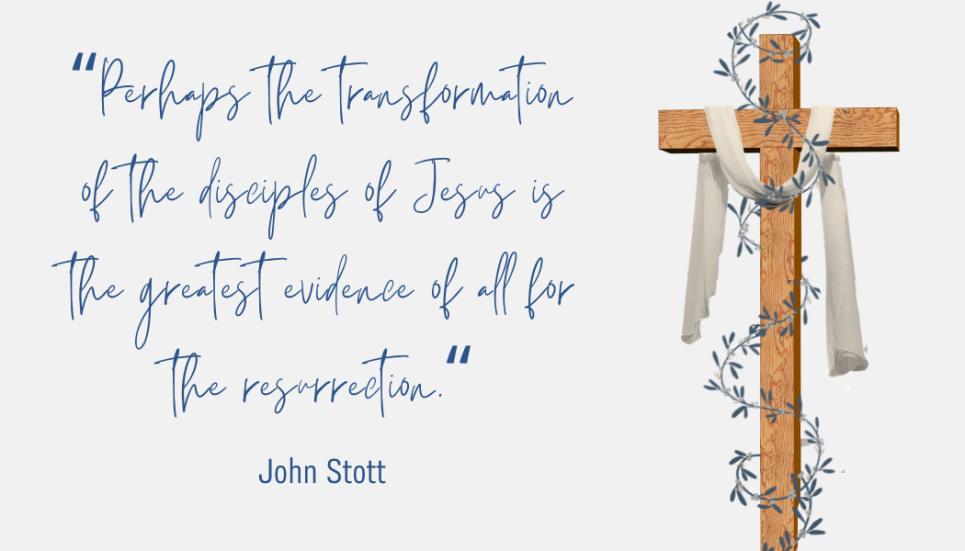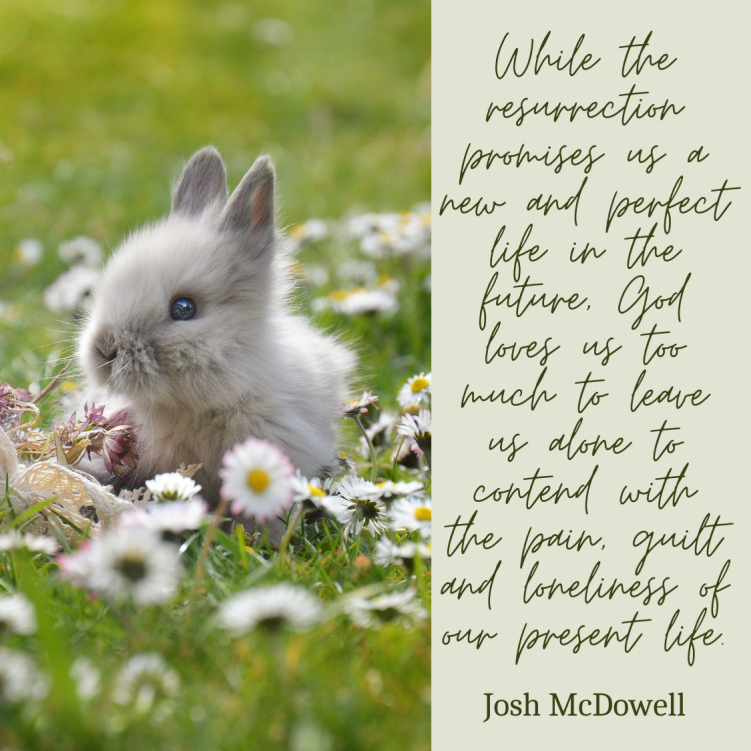The Day-to-Day Blessing of Resurrection
During the Easter season, the power of resurrection takes center stage, reminding us of the miraculous phenomenon that occurred over two millennia ago. Yet, Christ’s resurrection isn’t a one-time event; it’s a continual source of spiritual vitality and renewal that extends beyond Easter Sunday. We invite you to continue reading as we comb through the beauty and weight this remarkable force has in everyday life.
Day-to-Day Operation
When Jesus emerged from the tomb on that glorious morning, He shattered the chains of sin and death, ushering in a new era of hope and redemption for all who believe. The power of resurrection transcends physical revival; it is a living reality that pulsates throughout the depths of our souls, infusing our lives with newfound hope, purpose, resilience, and restoration.

Scriptural Foundation of Daily Resurrection
The following Biblical examples offer a glimpse of the manifold ways in which resurrection operates within the ebb and flow of everyday life, catalyzing spiritual growth and renewal of faith, perseverance, and hope.
Prevailing Over Setbacks
The stories below model resurrections’ vocation to encourage resolute solace and confidence in knowing that setbacks are not final, but opportunities that awaken and evoke strength and growth.
 Jonah: Jonah found himself swallowed by a great fish after attempting to flee from his divine calling. In the bowels of the fish's belly, Jonah underwent a revolutionary process of self-reflection and repentance. Jonah’s rebirth from disobedience to redemption exemplifies how the power of resurrection boosts an individual's ability to overcome challenges, confronting them head-on, and emerging reinvigorated.
Jonah: Jonah found himself swallowed by a great fish after attempting to flee from his divine calling. In the bowels of the fish's belly, Jonah underwent a revolutionary process of self-reflection and repentance. Jonah’s rebirth from disobedience to redemption exemplifies how the power of resurrection boosts an individual's ability to overcome challenges, confronting them head-on, and emerging reinvigorated.
Joseph: Sold into slavery by his jealous brothers, Joseph endured years of hardship and betrayal. Yet, through his unwavering faith and resilience, Joseph rose from the depths of servitude to become a trusted advisor to Pharaoh, ultimately saving his family from famine and solidifying his place in history. Joseph’s rise from despair to authority is a reminder that with the support of resurrection, setbacks need not define us but can instead serve as opportunities for growth and eventual triumph.
Potent Oomph and Fortitude
Hereinbelow are Biblical portrayals that express resurrections function to illuminate the path through life’s encroaching darkness with rays of hope, promise, and healing.
Job: Job's life traversed the spectrum of human experience, from the pinnacle of prosperity to the raw agony of human despair. Despite being stripped of his wealth, afflicted with debilitating illness, and mourning the loss of his loved ones, throughout his anguish, Job clung to his faith, fervently seeking vindication and answers from God. In the culmination of his trial, Job experienced resurrection and restoration, where his losses were replaced with abundance, and his suffering was remedied with an intimate understanding of divine providence.
Christ’s Ministry: The Gospels vividly depict the healing ministry of Jesus Christ, whose compassionate touch brings solace and restoration to the afflicted. Countless accounts bear witness to the miraculous transformations wrought by Christ's healing grace, as the blind receive sight, the lame walk, and the demon-possessed find liberation. These recollections depict the all-encompassing assurance and hope resurrection offers to all ensnared by the shackles of reproach and condemnation.
Lazarus: Entombed in the grip of death, Christ called forth Lazarus from the darkness of death into the radiant light of resurrection, foreshadowing His unsurpassed gift that defies the finality of the grave; heralding a foretaste of the glory to come.
Ongoing Rejuvenation and Improvement
As outlined below, as old ways are cast aside, and new life springs forth, resurrection holds the potential for us to transcend everyday mistakes and failings, keeping onward toward the path of purpose and service.
Saul/Paul: From persecutor to proclaimer, during his encounter with the risen Christ, Saul experienced spiritual resurrection. Compelled to confront the error of his ways, his heart is regenerated, his eyes are opened to the truth, and his life is redirected toward a new purpose as he embraces a new identity as a disciple of Jesus Christ.
Peter: Despite his bold professions of loyalty, Peter succumbs to fear and denies Jesus three times in the hours leading up to the crucifixion. However, in the wake of Christ's resurrection, Peter encounters the risen Lord on the shores of the Sea of Galilee, where he is not only forgiven but also commissioned to shepherd Christ's flock. Through this encounter, Peter experiences a profound spiritual resurrection, as his faith is renewed, his commitment is deepened, and his identity is transformed from a faltering disciple to a bold apostle. Peter’s story reveals that even in our moments of weakness, forgiveness, and restoration are secure through resurrection.
 The Prodigal Son: In this timeless parable, living recklessly, a wayward son squandered his inheritance. Estranged from his family and faith, he descends into destitution. But, in a moment of realization and humility, he returns to his father's house, seeking forgiveness and reconciliation. Upon his return, he is met with the warm embrace of his father's love and forgiveness. The wayward son's migration from rebellion to repentance, exile to restoration, is a testimony of resurrections' power to breathe new life into fractured relationships in this life while also affirming that no matter how far we may stray, our sins are forgivable, and God is always ready to welcome us home.
The Prodigal Son: In this timeless parable, living recklessly, a wayward son squandered his inheritance. Estranged from his family and faith, he descends into destitution. But, in a moment of realization and humility, he returns to his father's house, seeking forgiveness and reconciliation. Upon his return, he is met with the warm embrace of his father's love and forgiveness. The wayward son's migration from rebellion to repentance, exile to restoration, is a testimony of resurrections' power to breathe new life into fractured relationships in this life while also affirming that no matter how far we may stray, our sins are forgivable, and God is always ready to welcome us home.
Each narrative solicits you to abandon the confines of mortal frailty every day, offering a glimpse into the supreme proficiency of resurrection, where old lives are crucified with Christ, and new lives are raised to walk in the fullness of grace and truth.
He is Risen
 God's love is always at work, ready to resurrect our hearts and souls from the depths of despair to the heights of divine communion.
God's love is always at work, ready to resurrect our hearts and souls from the depths of despair to the heights of divine communion.
This Easter, as we welcome Christ to reignite our faith, let us be empowered to live every day as His witnesses, walking boldly in the assurance of His wonderful gift to us, arising above our circumstances and living victoriously in Him.
- Torrance Church of Christ





